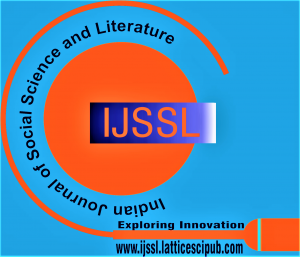![]()
Facebook as an Agent to Tackle Climate Change with Reference to University Students in Assam
Florence Handique Rabha1, N. Rohinkanta Singh2
1Florence Handique Rabha, Asst Prof & Head, Department of Electronic Media & Anchoring, Royal School of Communications and Media, The Assam Royal Global University, Guwahati (Assam), India.
2Dr. Nongmaithem Rohinkanta Singh, Associate Professor, Royal School of Communications and Media, Assam Royal Global University, Guwahati (Assam), India.
Manuscript received on 11 June 2022 | Revised Manuscript received on 22 June 2022 | Manuscript Accepted on 15 September 2022 | Manuscript published on 30 September 2022 | PP: 11-23 | Volume-2 Issue-1, September 2022. | Retrieval Number: 100.1/ijssl.E1025091522 | DOI: 10.54105/ijssl.E1025.091522
Open Access | Ethics and Policies | Cite | Mendeley | Indexing and Abstracting
© The Authors. Published by Lattice Science Publication (LSP). This is an open-access article under the CC-BY-NC-ND license (http://creativecommons.org/licenses/by-nc-nd/4.0/)
Abstract: The world is living in crucial times of climate change with an adverse impact on our planet. It is therefore vital for everyone to understand the implications of being ignorant of the causes of climate change. The need for increasing awareness is greater now than ever before, and the best means available for this is through extensive use of social media. The proliferation of social media tools in this information age is tremendous. The effect of popular social media platforms like Facebook and its patterns of usage by university students need to be investigated. The global outreach of various platforms of digital media is unparalleled. Social media could be a desirable platform to fight against all the odds in climate change. This study investigates the usage patterns of Facebook as an agent to tackle climate change amongst the university students in Assam. The study is exploratory in nature and executed through a quantitative research methodology. The data is collected by employing survey method with close ended questionnaire as its research tool. This study analyses the opinions drawn from 100 university students studying in various universities in Assam. The data has been taken through snowball sampling technique and measured with Likert Scale. It is pertinent to understand the level of awareness of the university going students about climate change. Perhaps, this is high time to analyse the usage patterns of Facebook by university students and spell out the rationale behind its effectiveness in fighting against climate change.
Keywords: Awareness, Climate Change, Digital Media, Facebook, Information Age and Social Media.
Scope of the Article: Media
